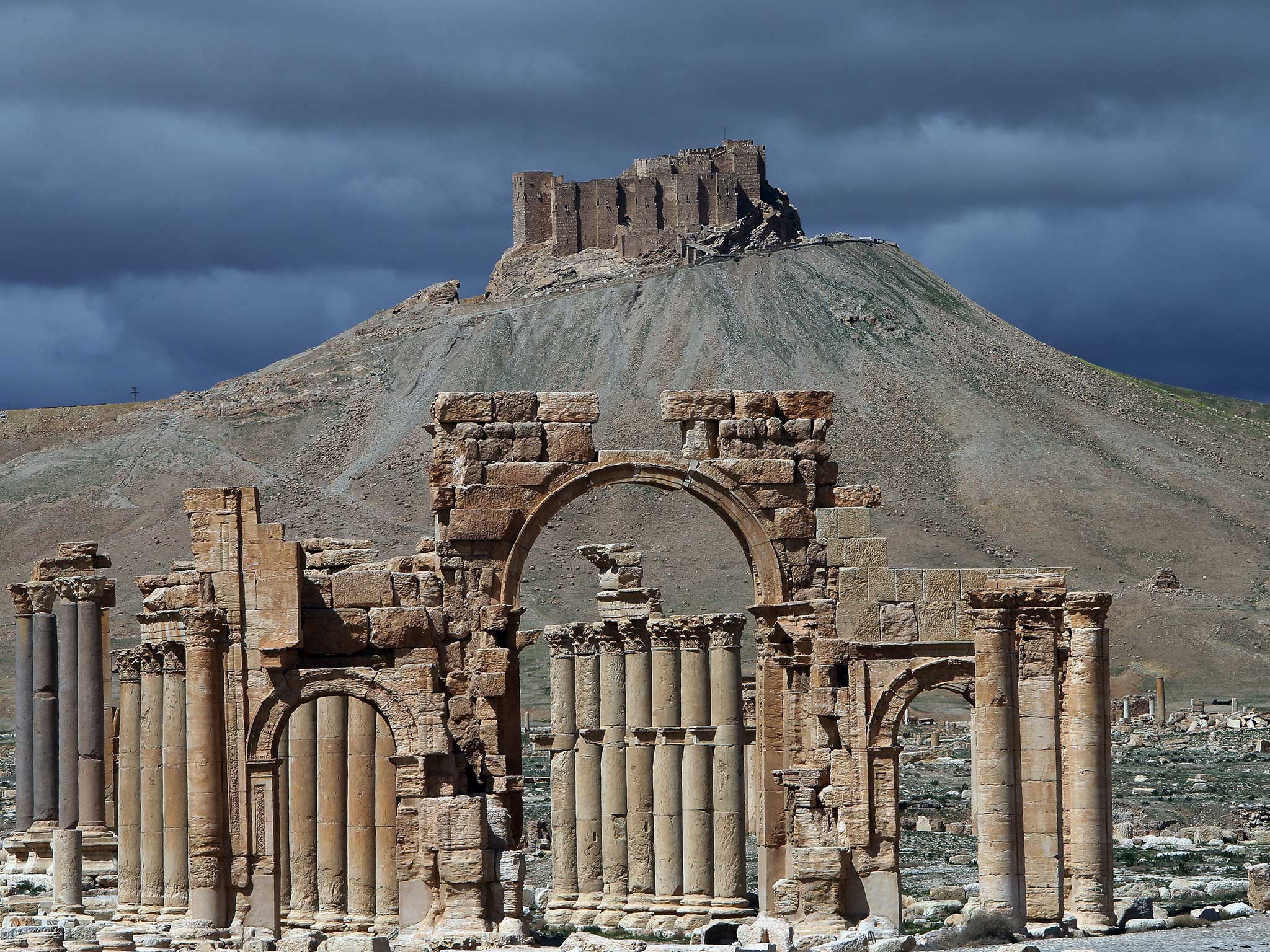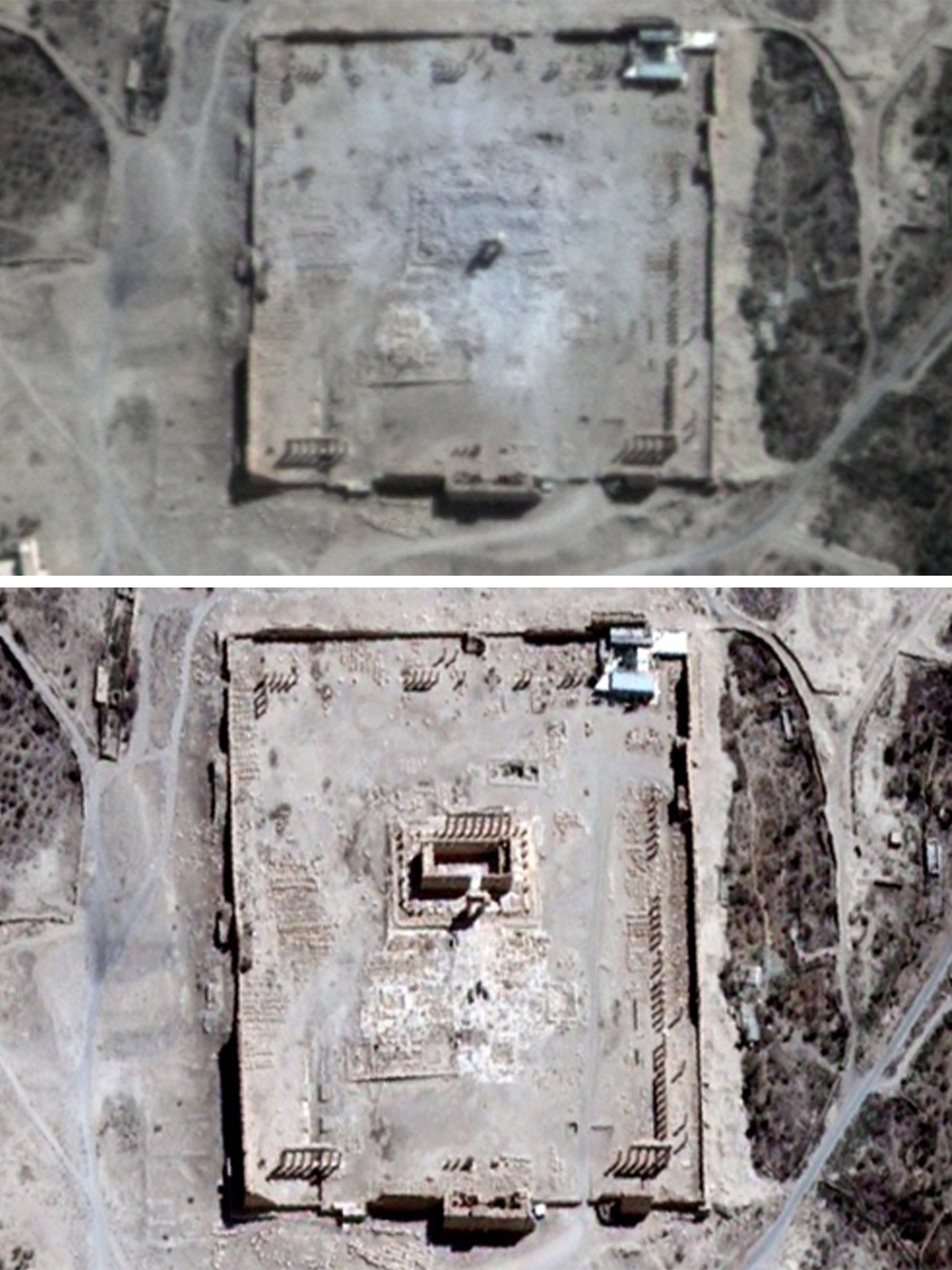Russia has started bombing Isis targets in Palmyra
A fortification, underground bunker and anti-aircraft artillery were allegedly destroyed in the strike

Your support helps us to tell the story
From reproductive rights to climate change to Big Tech, The Independent is on the ground when the story is developing. Whether it's investigating the financials of Elon Musk's pro-Trump PAC or producing our latest documentary, 'The A Word', which shines a light on the American women fighting for reproductive rights, we know how important it is to parse out the facts from the messaging.
At such a critical moment in US history, we need reporters on the ground. Your donation allows us to keep sending journalists to speak to both sides of the story.
The Independent is trusted by Americans across the entire political spectrum. And unlike many other quality news outlets, we choose not to lock Americans out of our reporting and analysis with paywalls. We believe quality journalism should be available to everyone, paid for by those who can afford it.
Your support makes all the difference.Russian jets have started bombing the area around the Isis-held city of Palmyra.
"Su-25 jets hit a fortified IS position in the Tadmur area of Homs province," Moscow's defence ministry said in a statement reported by Yahoo News, using the Arabic name for Palmyra.
"As a result of a direct strike a fortification, underground bunker and anti-aircraft artillery were destroyed."
Russia's air force flew 131 sorties and hit 237 targets in Syria in the last two days, the ministry went on to say.
Isis have previously destroyed two ancient templates and several tower tombs at the UNESCO World Heritage site of Palmyra.

The Islamist militants destroyed various iconic religious buildings which had survived for 2,000 years as they sought to remove any form of idolatry.
They went on to behead 81-year-old Khaled al-Asaad, the archaeological director of a museum detailing Palmyra's antiquities.
Join our commenting forum
Join thought-provoking conversations, follow other Independent readers and see their replies
Comments